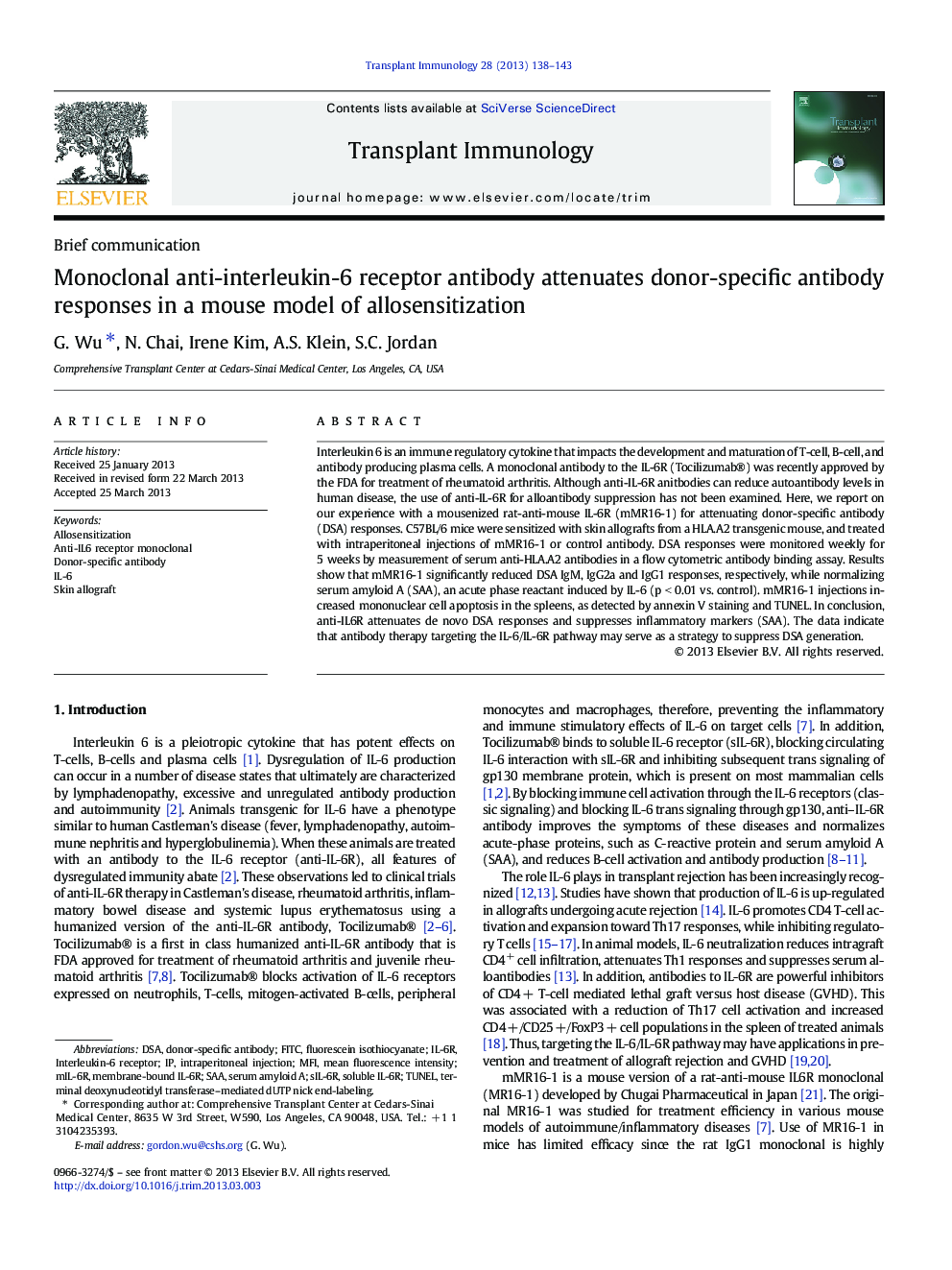| Article ID | Journal | Published Year | Pages | File Type |
|---|---|---|---|---|
| 3392162 | Transplant Immunology | 2013 | 6 Pages |
•An anti-mouse IL-6R mAB was tested in a mouse model of allosensitization.•The treatment is effective in attenuating donor-specific antibody (DSA) responses.•The data suggest that anti IL-6R may serve as a new strategy for DSA suppression.
Interleukin 6 is an immune regulatory cytokine that impacts the development and maturation of T-cell, B-cell, and antibody producing plasma cells. A monoclonal antibody to the IL-6R (Tocilizumab®) was recently approved by the FDA for treatment of rheumatoid arthritis. Although anti-IL-6R anitbodies can reduce autoantibody levels in human disease, the use of anti-IL-6R for alloantibody suppression has not been examined. Here, we report on our experience with a mousenized rat-anti-mouse IL-6R (mMR16-1) for attenuating donor-specific antibody (DSA) responses. C57BL/6 mice were sensitized with skin allografts from a HLA.A2 transgenic mouse, and treated with intraperitoneal injections of mMR16-1 or control antibody. DSA responses were monitored weekly for 5 weeks by measurement of serum anti-HLA.A2 antibodies in a flow cytometric antibody binding assay. Results show that mMR16-1 significantly reduced DSA IgM, IgG2a and IgG1 responses, respectively, while normalizing serum amyloid A (SAA), an acute phase reactant induced by IL-6 (p < 0.01 vs. control). mMR16-1 injections increased mononuclear cell apoptosis in the spleens, as detected by annexin V staining and TUNEL. In conclusion, anti-IL6R attenuates de novo DSA responses and suppresses inflammatory markers (SAA). The data indicate that antibody therapy targeting the IL-6/IL-6R pathway may serve as a strategy to suppress DSA generation.
